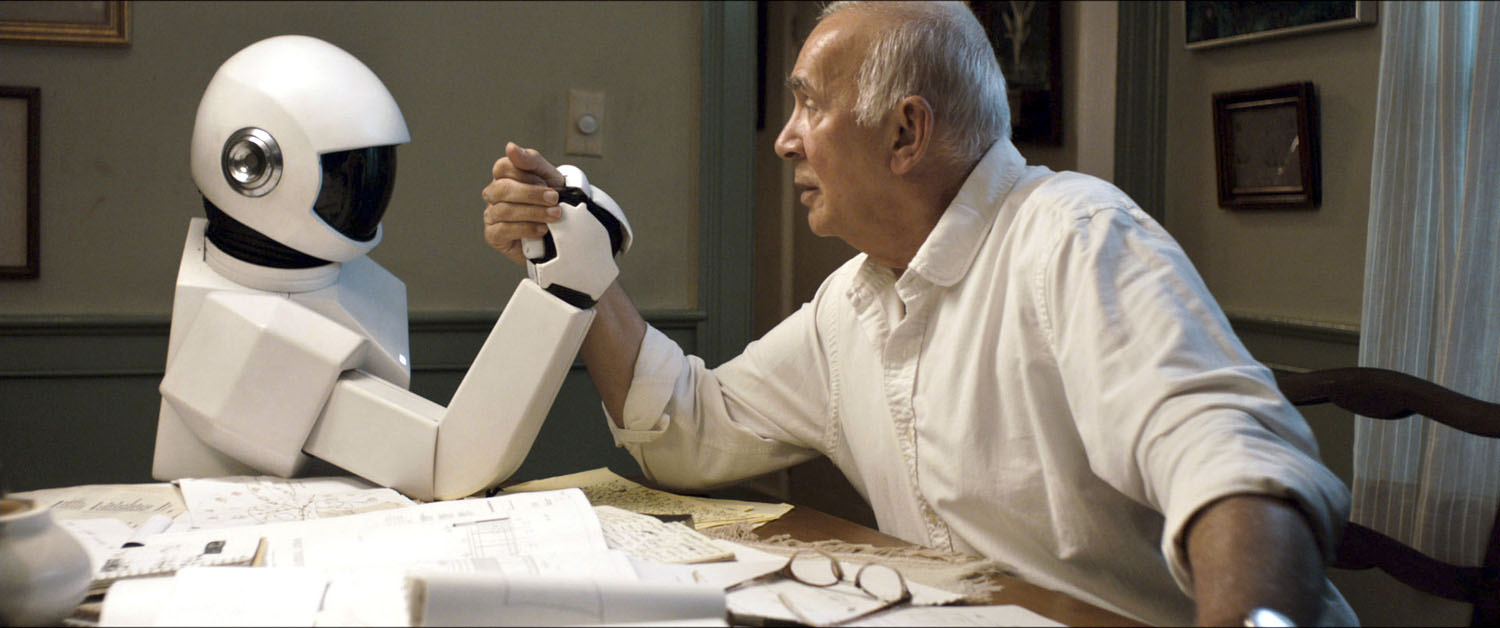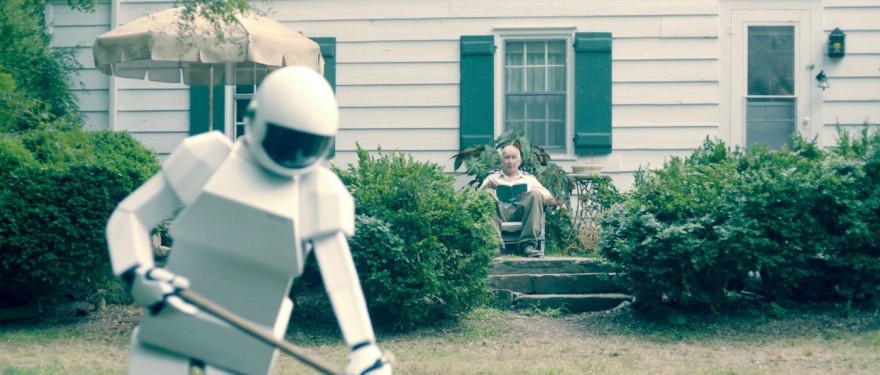Last week, the Pew Research Center’s Internet Project asked over 2,000 experts what the future of artificial intelligence and robotics would be. The group was split between those that thought an influx of AI and robots would usher in a new era of human development those that believe that this type of progress will come at the expense of jobs and social unrest. Red pill, blue pill, right?
One of the things the two sides did agree upon is that the nature of “work” would radically change. Specifically, some of the dominant modes of labor would start to unravel. Showing up to a single location the same day, climbing the corporate ladder, or working on an assembly line as my parents’ generation did could be a thing of the past. “I believe the concept of ‘jobs’ and ‘employment’ will be far less meaningful,” Kevin Carson, a senior fellow for the Center for a Stateless Society, responded to the survey. (I’m hoping Carson is not euphemistically using “meaningful” as shorthand for “low-paying.)
Ok, so I tend to be far more pessimistic about human nature (not quite Rusty Cohn, I hope), but the techno-optimist response raises an intriguing question about our future. If the robots come for us and replace manufacturing jobs, initially, but perhaps other additional more skilled labor eventually (cough, journalism), then we will have larger numbers of people who won’t, well, need to work. In a best case scenario, we’ll simply do less grunt work. “If ‘displace more jobs’ means ‘eliminate dull, repetitive, and unpleasant work,’ the answer would be yes. How unhappy are you that your dishwasher has replaced washing dishes by hand, your washing machine has displaced washing clothes by hand, or your vacuum cleaner has replaced hand cleaning?” Hal Varian, Google’s chief economist, mused.

But in a worst case scenario, we run the risk of creating a “permanent underclass” (Pew’s terms) as large swaths of people who’ve lost their jobs to automation developed little hope to be employed in the future. Awesome.
In either scenario, the future sounds like, well, less work, for better or worse. And if that’s true, then what to do with all that time?
One simple answer is protest. “What we’re seeing is a decline in the overall number of people required to do a job,” said Daryl Plummer, a Gartner analyst at the research firm’s Symposium ITxpo. Plummer’s prime example is Kodak, which once employed 130,000, versus Instagram’s 13. The analyst believes social unrest movements, a la Occupy Wall Street, will rise again in the coming years as the job creation problem deepens.
Another answer is to simply work less. “The only solution that I see is a shrinking work week. We may perhaps be working for 10 to 20 hours a week instead of the 40 for which we do today,” Vivek Wadhwa, fellow at Stanford’s center for Corporate Governance, says. But then what?
I have another suggestion: what if this future of fewer hours meant that we could finally play games together?
There is no doubt that the amount of work that we currently perform is untenable. “One of capitalism’s most durable myths is that it has reduced human toil,” Juliet Schor wrote in The Overworked American. Pre-industrial workers actually toiled less than we do now. Moreover, thirty years ago, the best-paid workers in the U.S. were much less likely to work long days than low-paid workers were. By 2006, the best paid were twice as likely to work long hours as the poorly paid, and the trend seems to be heightening. “Overwork,” observed James Surowiecki in The New Yorker, “has become a credential of prosperity.” All work, no play, etc.
But if we are to suppose a massive decrease in the thing formerly known as “work,” then it seems only logical to replace it with its converse: lots and lots of games. As Francois-Dominique Armingaud, a retired IBM computer software engineer from IBM, dreamed, “The main purpose of progress now is to allow people to spend more life with their loved ones instead of spoiling it with overtime while others are struggling in order to access work.” What better time spent than enraptured in a heady game of Ticket to Ride or Mario Kart then?

Games are wonderful precisely because they are “unproductive.” Unless you play professional sports (IRL or electronic), then you’re not likely to be paid for your efforts. This is wonderful because this unproductively gives us time for actual enjoyment, untied to any type of monetary gain. When James Naismith invented basketball, he didn’t include coaches because he felt that the professionalization of the game would be contrary to his mission of sport as a civilizing agent. And thus, the very act of “not” making money while playing games makes it a perfect antidote to this potentially pending state of perpetual idleness.
Johan Huizinga, the Dutch anthropologist who first opened up the language of play to academia in Homo Ludens, argued that what makes play play is that it happens outside the ambit of work. It’s something done on playgrounds and on kitchen tables, not on assembly lines or in the office. “The need for [play] is only urgent to the extent that the enjoyment of it makes it a need,” Huizinga argued. “Play is not ‘ordinary’ or ‘real’ life.”
In 1996, writer William Gibson mused about his recent love of a “new” thing known as the World Wide Web to the New York Times. This was 15 years after he coined the term “cyberspace,” and he reveled the strangeness of the internet, a place where he could idly download Beatles bootlegs from a Japanese fan. This was the pre dot-com, pre-commercial Web, and Gibson’s adoration stemmed from the simple personal reality that also serves as the article’s title: “The Net is Waste of Time.” It was a refreshing contrast from the hectic times he found himself living in, a world “as quaint and vaguely melancholy as the battered leather valise in a Ralph Lauren window display.”
For Gibson, the joy of wasting time served as a hope for the vision of technologically-enabled leisure age, one spent without purpose, but in the best way. And he found that in the earliest incarnation of the web. “Today, in its clumsy, larval, curiously innocent way, it offers us the opportunity to waste time, to wander aimlessly, to daydream about the countless other lives, the other people, on the far sides of however many monitors in that postgeographical meta-country we increasingly call home.”
“Waste” to Gibson was time for contemplation and peace. Games offer that same reprieve. Their clever avoidance of utility allows them to wear the badge of “waste” loudly. Fun is fun, and it’s time spent with others.

But what of the dark scenario? The one plucked from the story-line of Neill Blomkamp’s Elysium, where those whose jobs have been replaced find themselves adrift at the wrong end of history?
In her very popular TED talk “Gaming can make a better world,” game designer Jane McGonigal shared the story of the King of Lydia who used games to distract from a famine that was ravaging his kingdom. One day, the people would say, the next day, they would play games. After 18 years, the Lydians played one final dice game to determine which half of the kingdom would seek out new lands to save them. McGonigal goes on to detail how, if the gambit worked, the Lydians may, in fact, have become the foundation of the Etruscans. Boom. Games are messianic.
Now, McGonigal’s story bolsters her larger argument that games should transition from escapism (distracting from starvation) to “blissful productivity” (finding new kingdoms). But there’s an alternate reality in which the Lydians starve to death, playing dice games all the while. It’s this latter possibility that we face if much of the world’s labor is replaced by robots. In such a scenario, we, again, would have much free time to fill. Gibson predicted as much, again from his essay, observing, “Only the very old or the economically disadvantaged (provided they are not chained to the schedules of their environment’s more demanding addictions) have a great deal of time on their hands.”
Playing games to fill the lives that robots have robbed does belie the cold existential reality of a life without “meaningful” work. (That euphemism again!) But it would provide a welcome salve, a sense of community, and much needed enjoyment in this darker universe. It is not replacement, but I cannot think of time better spent than with others joined in the company of play.
Stills from Robot and Frank, Johan Sebastian Joust, and Elysium.
